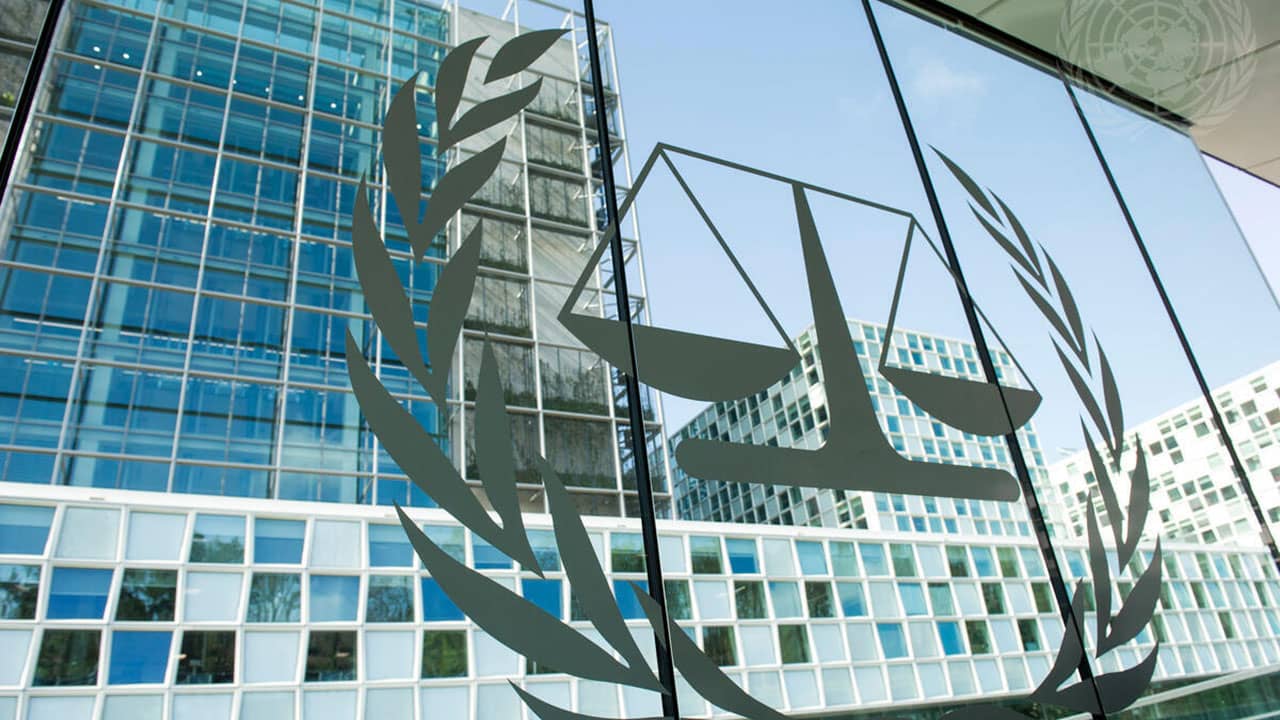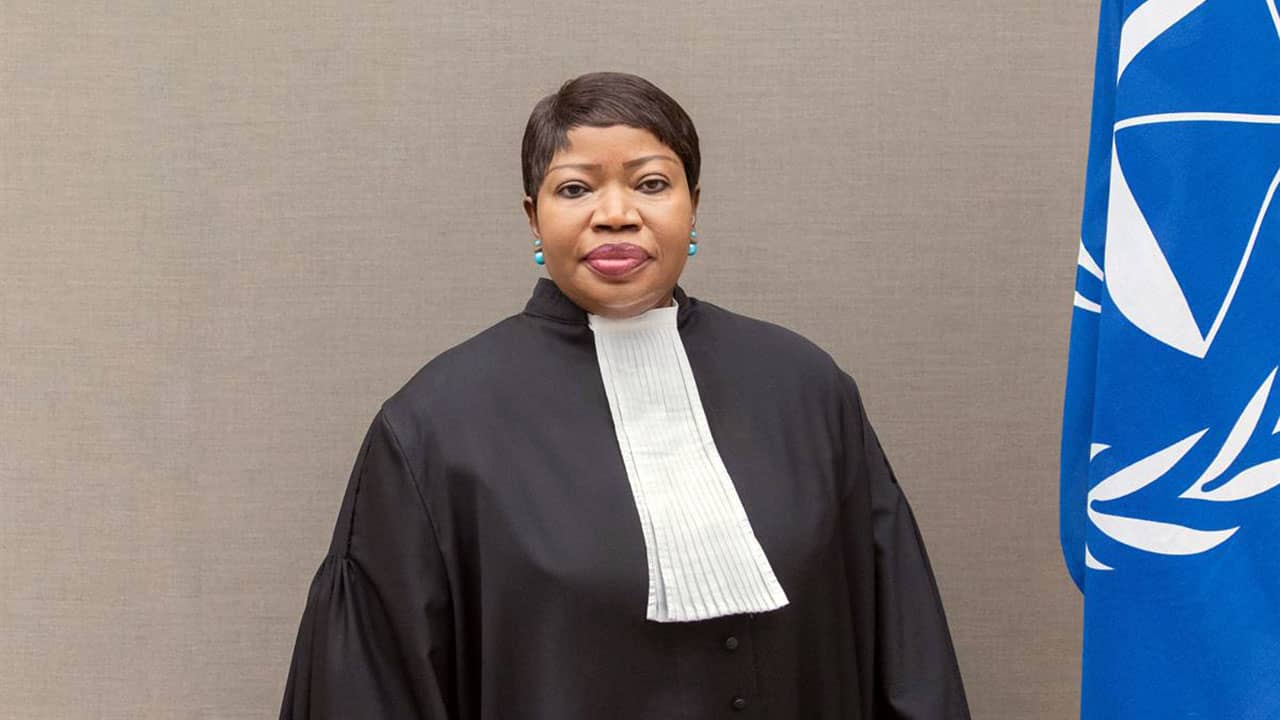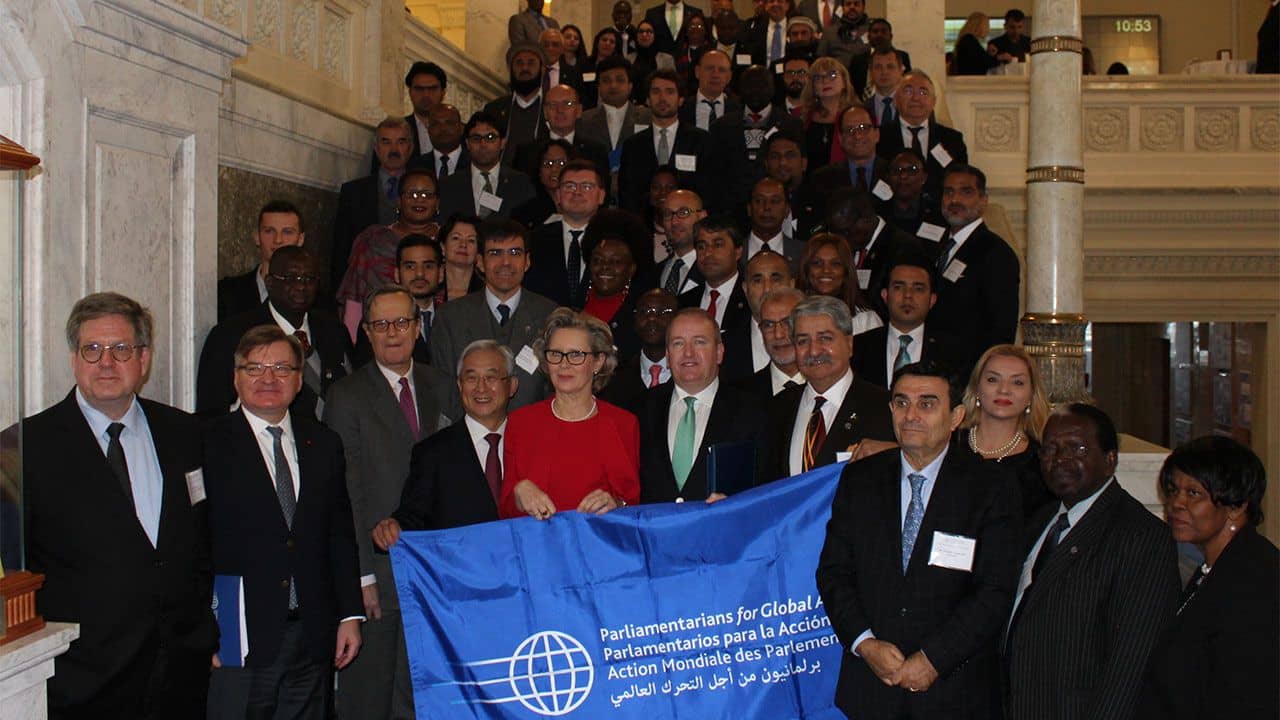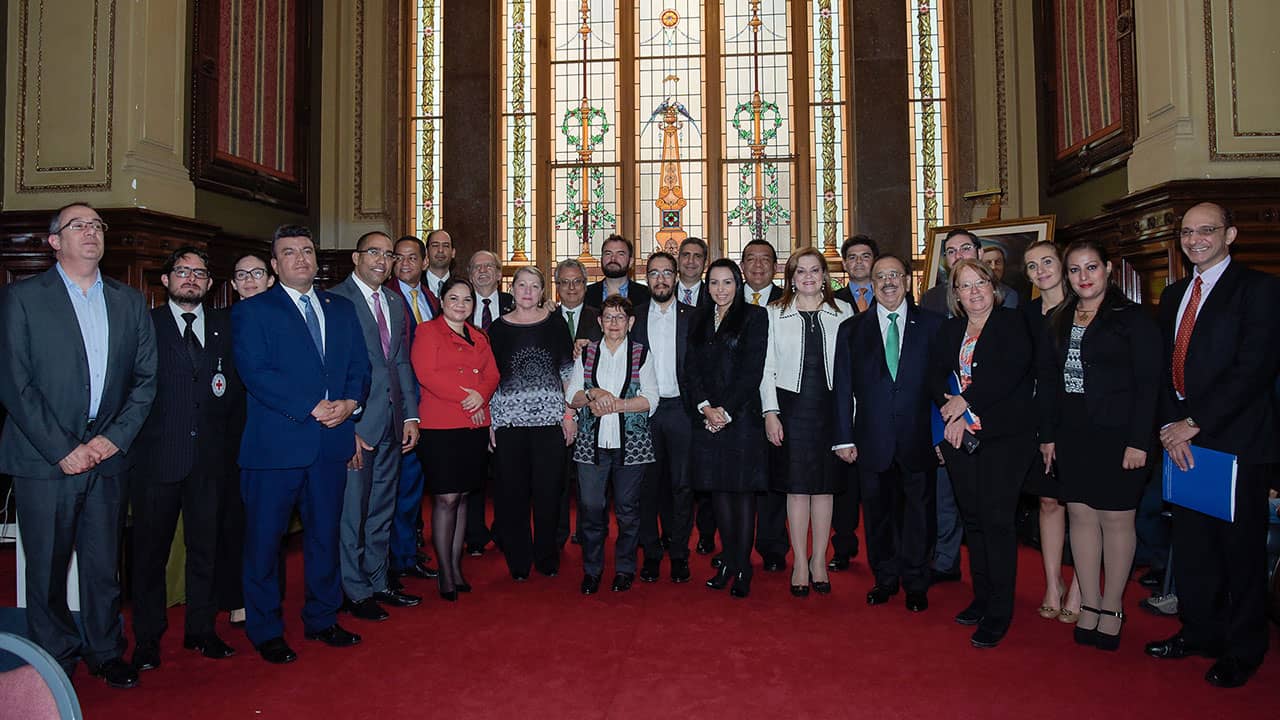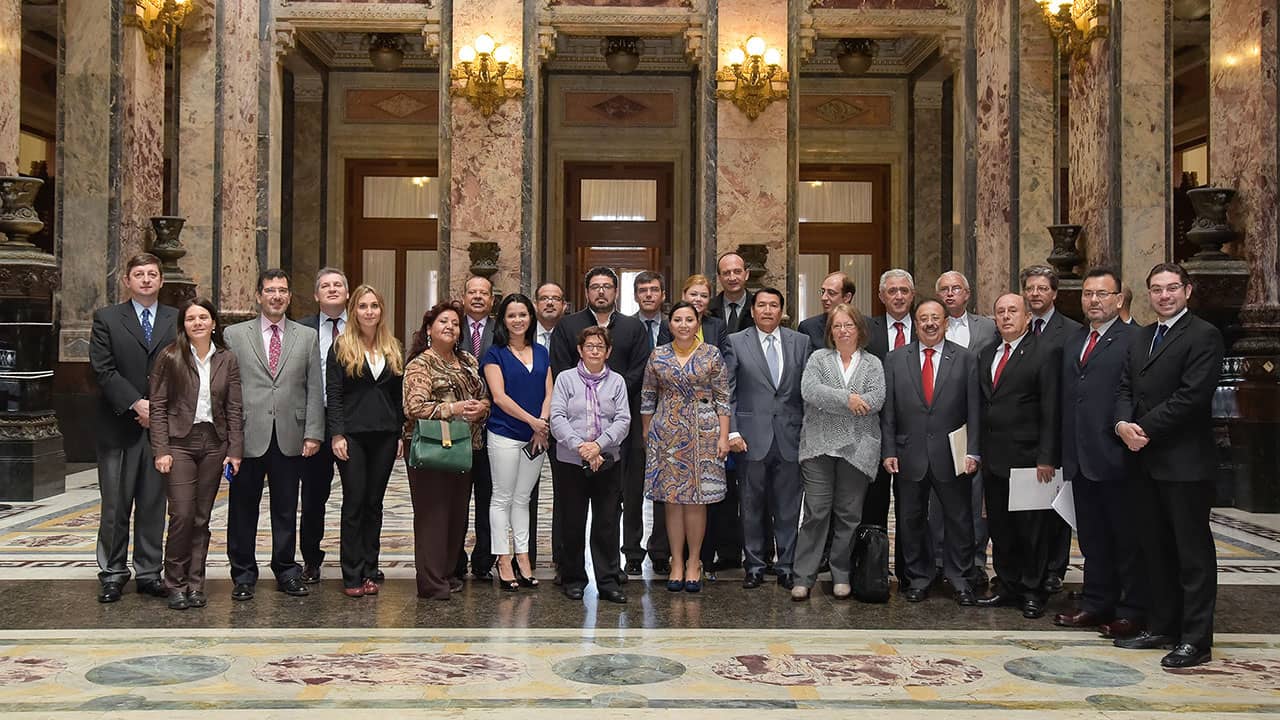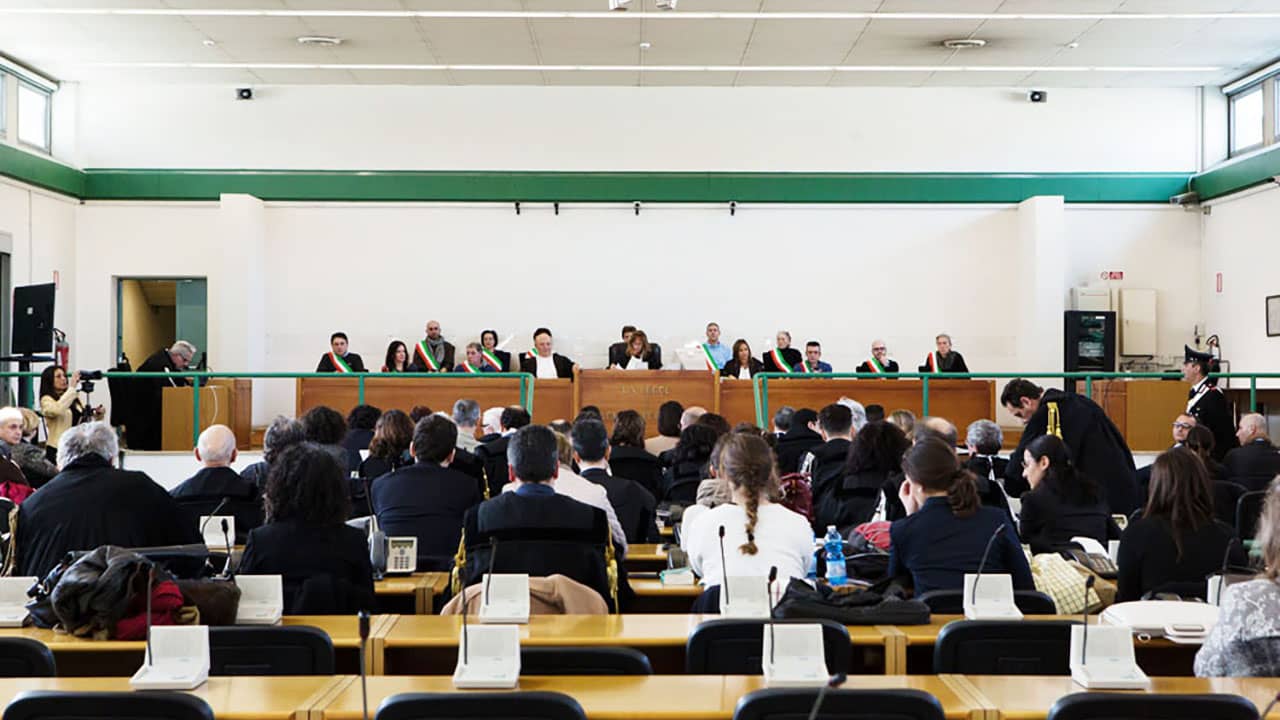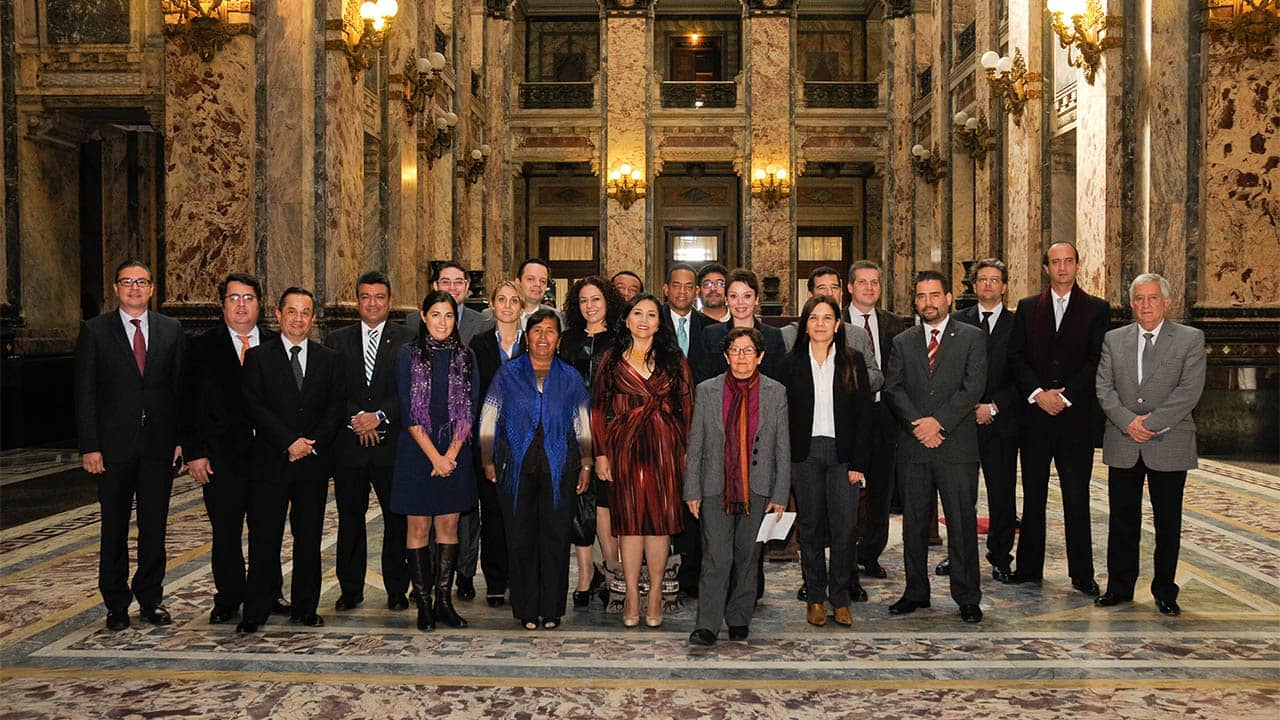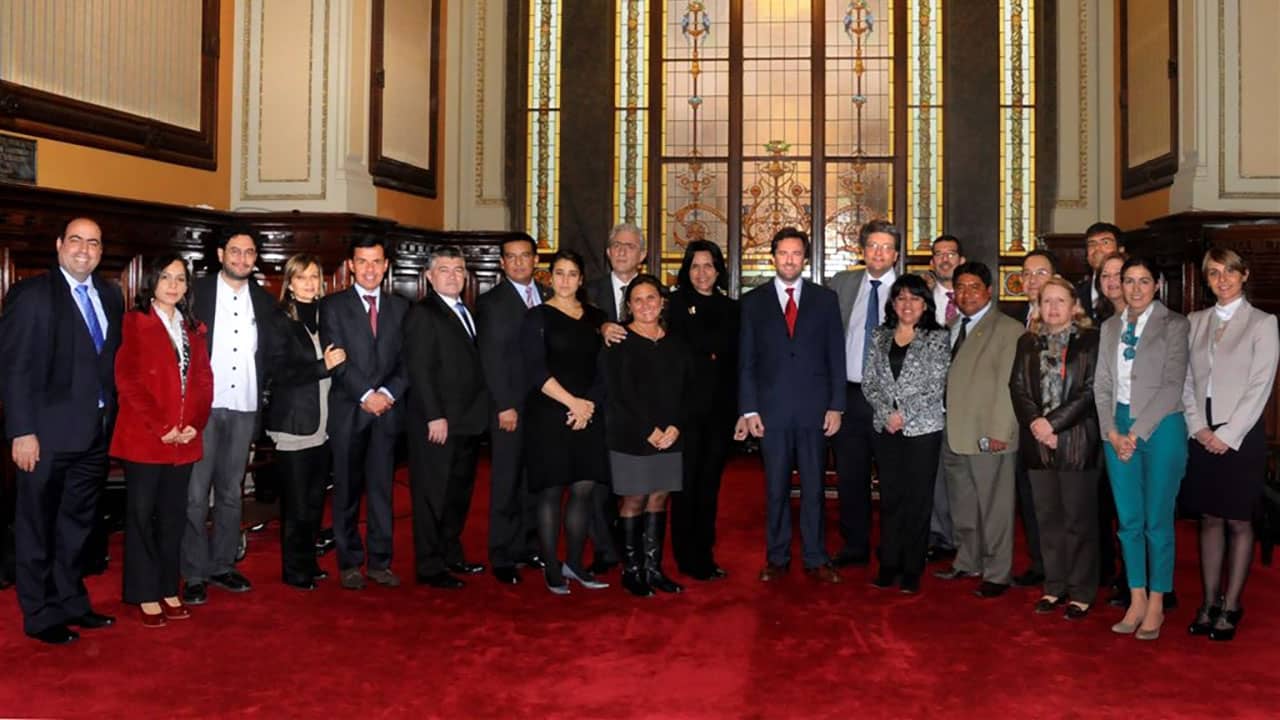On 10 December 2008, the President of Bolivia promulgated the Supreme Decree N° 29851, which established the “National Plan of Action for Human Rights - Bolivia: Dignity and Well-Being 2009-2013”. This plan contains elements relating to the implementation of the Rome Statute in the national legislation since it highlights as an objective the “support to the adoption of the Draft Law for the Implementation of the Rome Statute currently before the legislative organ of the Plurinational State of Bolivia.”
Even though after the constitutional reform of 2009, article 257 established that when an International Treaty is ratified, it becomes part of the domestic legal order, Bolivia has no legislation implementing the Rome Statute. The Bolivian State has incorporated into its domestic legislation mechanisms for support and coordination with the institutions of the State, which deal specifically with the Rome Statute. Law N°260 of 12 July 2012, the Organic Law of the Office of the Public Prosecutor, stipulates that one of the latter’s functions is to provide the international judicial, administrative, or investigative cooperation envisaged in current international laws, treaties, and conventions.
Significant progress has been achieved in implementing the Rome Statute; however, there is still work to be done. In its answer to the Plan of Action, the Plurinational State of Bolivia expressed to the Secretariat of the Assembly of States its willingness to continue working on implementing the Rome Statute to fulfill its international commitments.
In June 2012, Evo Morales Ayma, President of Bolivia, visited the International Criminal Court. Then-ICC President briefed President Morales on recent developments at the Court and thanked the visiting President for his personal commitment and interest in the ICC. President Morales explained the ongoing democratic progress in the political transformation that Bolivia’s democracy has been implementing since 2006, with a profound restructuring of the political system of representative democracy and human rights. President Morales requested technical assistance to prepare the new legal systematization of the judiciary and invited the ICC’s President and Prosecutor to visit Bolivia.
In this same year, the Ministry of Justice set up an ad hoc commission in charge of drafting a new Code of Criminal Procedure (CCP), which included a few complementarity and cooperation provisions. Moreover, the Ministry of Justice was also working on drafting ICC implementing legislation that took into account the 2006 proposal prepared by the Ombudsman’s office. Bolivian law currently includes some general provisions on international judicial cooperation.
In 2004, Dip. Raúl Araóz Velasco (Chair, Justice Committee) and Dip. Paulo Bravo Alencar (Chair, Human Rights Committee) of the Chamber of Deputies of Bolivia stood firmly against the ratification of a bilateral non-surrender agreement with the United States, deterring the Bolivian Government from submitting the agreement to the Chamber for ratification, hence affecting the obligations of Bolivia under the Rome Statute.
| Signature, Ratification of/Accession to the Rome Statute of the ICC | |
|---|---|
| Signature Date: | 17 July 1998 |
| Ratification Date: | 27 June 2002 |
| Amendments to the Rome Statute | |
|---|---|
| Ratification of the Kampala Amendment to Article 8 of the Rome Statute on war crimes [poison and expanding bullets in NIAC] (2010): | No. |
| Ratification of the Kampala Amendment to the Rome Statute on the crime of aggression reflected in Article 8 bis (2010): | Yes, ratified on 20 December 2020. |
| Ratification of the Amendment to Article 124 of the Rome Statute (2015): | No. |
| Ratification of the Amendment to Article 8 of the Rome Statute on war crimes [biological weapons] (2017): | No. |
| Ratification of the Amendment to Article 8 of the Rome Statute on war crimes [blinding laser weapons] (2017): | No. |
| Ratification of the Amendment to Article 8 of the Rome Statute on war crimes [non-detectable fragments] (2017): | No. |
| Ratification of the Amendments to Article 8 of the Rome Statute on war crimes [starvation as a war crime in NIAC] (2019): | No. |
| Adoption of implementation legislation of the Rome Statute of the ICC | |
|---|---|
|
With the approval of Bill N°1768 of 10 March 1997, Bolivia incorporated in the national legislation the definition of genocide in article 138 of the Criminal Code. However, the Plurinational State of Bolivia lacks full implementation of the core principles and crimes of the Rome Statute. The Political Constitution of Bolivia recognizes the imprescriptibility of genocide, war crimes, and crimes against humanity. In addition, title VI of the Code of Criminal Procedure provides for international judicial and administrative cooperation on legal matters. |
|
| Cooperation Agreements | |
|---|---|
| Ratification of Agreement on Privileges and Immunities of the Court (APIC): | Yes, ratified on 20 January 2006. |
| Signature of Agreement of Enforcement Sentences with the ICC: | No. |
| Signature of Agreement of Interim and Final Release with the ICC: | No. |
| Signature of Bilateral Immunity Agreement with the USA: | No. |

